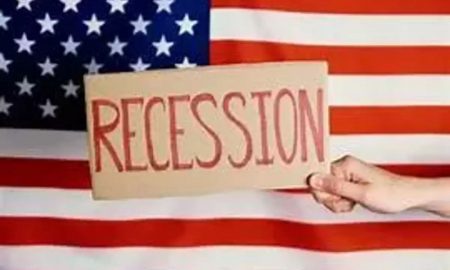
Can Someone Else Pay Off My Debt?

Debt can feel like a heavy burden, weighing down your financial stability and peace of mind. When bills pile up and payments become overwhelming, it’s natural to wonder, “Can someone else pay off my debt?” For some, help might come from an unexpected source—a friend or family member offering to step in. But before accepting such an offer, it’s essential to understand the implications and responsibilities of this kind of assistance.
Can Someone Else Pay Off My Debt?
Yes, someone else can pay off your debt. However, there are crucial factors to consider before accepting such an offer. These include:
Understanding Creditor Rules
Creditors generally allow third parties to pay off debts, but each has its own set of rules. For example, if you’re behind on mortgage payments, your lender might not accept a partial payment unless it brings your account current. Some creditors may also require verification of the payment’s source to ensure it’s not coming from an illegal activity. Before proceeding, you must check with your creditor to understand their specific policies.

wayhomestudio | Freepik | Creditors allow third parties to pay off debts, but each has its own set of rules.
Possible Changes to Loan Terms
If someone plans to assume your debt, your lender may want to alter the loan terms. This could mean a change in interest rates or other conditions. For instance, if a family member with good credit wants to take over your mortgage, the lender might agree but with adjusted terms that reflect the new borrower’s creditworthiness. Reviewing any proposed changes is vital to avoid unexpected costs or obligations.
Tax Implications of Paying Off Debt
Tax considerations are crucial when someone else pays off your debt. If a friend or family member pays off a significant portion of your debt, the IRS may view it as a gift. For 2023, the gift tax exemption is $17,000 per individual. If the payment exceeds this amount, the giver may need to report it. However, substantial gifts may be covered under the lifetime gift tax exemption, which allows for up to $12.92 million.
It’s also worth noting that if an employer pays off your debt, it’s considered taxable income. The payment could be subject to payroll taxes and must be reported on your W-2 form. Always consult with a tax professional to understand your obligations fully.
The Impact on Relationships
Accepting financial help from someone you know can strain relationships. The person paying off your debt might expect repayment or use it as leverage in future disagreements. Before proceeding, having an open and honest conversation about expectations is crucial. Consider formalizing the arrangement with a loan contract or promissory note that outlines repayment terms. This can prevent misunderstandings and preserve the relationship.
4 Ways Someone Can Pay Off Your Debt
If you’re fortunate enough to have someone willing to help, there are several methods they can use to pay off your debt. Each approach has its pros and cons, and choosing the one that works best for both parties involved is essential.
1. Giving a Cash Gift
One straightforward way is for the person to give you the money directly. This method is simple but might not be practical for large sums. Direct transfers into your account or via a payment app might be more manageable if the debt is significant.

Karolina Kaboompics | Pexels | One straightforward way for someone to pay off your debt is for the person to give you the money directly.
2. Paying the Creditor Directly
Another option is for your benefactor to pay your creditor directly. They’ll need your account number and creditor details to do this. Whether they pay online, by phone, or by mailing a check, this method ensures the money goes straight to the debt without passing through your hands.
3. Linking Bank Accounts
If your benefactor wants to make ongoing payments, they might link their bank account to your debt account. This method is useful for handling monthly payments and can help manage the debt over time rather than as a one-time payoff.
4. Using Their Credit
Your donor might consider paying off your high-interest debt using their credit. This could involve taking out a low-interest loan or using a balance transfer credit card to consolidate the debt under better terms. This option might save money on interest, but it requires the donor to have strong credit and a willingness to take on the financial responsibility.
More in Loans & Mortgages
-
`
Everything You Need to Know About an Assumable Mortgage
What is an Assumable Mortgage? Whether you are a buyer or a seller, understanding the concept of assumable mortgages can open...
June 6, 2024 -
`
Layoff vs. Fired – Understanding the Crucial Differences
When it comes to job loss, understanding the distinction between being layoff vs. fired is crucial. While both situations result in...
May 30, 2024 -
`
When Are Business Taxes Due 2024? Essential Dates and Deadlines
Tax deadlines can be daunting, but fear not! Let’s break down everything you need to know to stay on top of...
May 22, 2024 -
`
How Much Does Jeff Bezos Make Per Hour? It’s More Than You Think!
Jeff Bezos, a name synonymous with innovation and wealth, stands as one of the world’s richest individuals. While Bernard Arnault and...
May 16, 2024 -
`
What is Portfolio Investment Entity (PIE) and How Can it Benefit You?
In the intricate world of finance, individuals seek avenues to optimize their investments while minimizing risks. One such avenue gaining traction...
May 9, 2024 -
`
What is a Bank Statement? Understanding its Definitions, Benefits, and Prerequisites
Ever wondered where your money goes? A bank statement is like a financial report card, giving you a clear picture of...
April 30, 2024 -
`
Branded Content: A Genuine Way to Connect With Your Audience
Have you ever binge-watched a series on Netflix, only to later realize that the beverage everyone’s sipping on is that brand...
April 23, 2024 -
`
What Car Does Jeff Bezos Drive? Find Out Inside His Exclusive $20 Million Collection
Have you ever wondered what car does Jeff Bezos drive? This man’s tastes in vehicles are as expansive as his business...
April 17, 2024 -
`
Redeeming Your Savings Bonds – Here’s What You Need to Know
Today, savings bonds stand out as a steadfast option for many Americans. If you are pondering over the process of U.S....
April 11, 2024















You must be logged in to post a comment Login